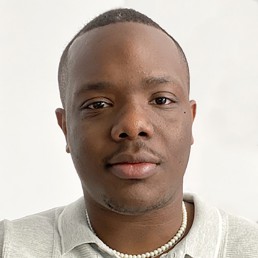By Trevon James, Research Fellow, The Board Challenge
The Board Challenge recently hosted a Clubhouse chat with two tech boardroom insiders to share their perspective on the importance of diverse boards. Our last conversation aimed to dispel the pipeline myth around a lack of Black corporate board-ready talent.
For this installment of our fireside chats, Guy Primus, co-founder of The Board Challenge and CEO of Valence, hosted an insightful conversation with Merline Saintil, Corporate Director at Rocket Lab and Lightspeed,and Dr. Alec Gallimore, Corporate Director at PagerDuty and ANSYS, and the Robert J. Vlasic Dean of the University of Michigan College of Engineering.
Board Diversity in Tech by the Numbers
Despite numerous pledges to improve the representation for women and racial/ethnic minorities, the tech industry continues to lag behind on diversity metrics. This reality is also reflected in the boardroom of companies across the spectrum- from pre-IPO and venture-backed firms to large public companies.
According to the Spencer Stuart Board Index, 172 new directors were added to the top 200 U.S. tech company boards in 2020 for a total of 1,805 current board seats. Black professionals make up just 3% of the total, holding 55 seats. These numbers may not be encouraging, but the movement to turn the trend around shows promise.
Our two guest speakers, representing a growing cadre of exceptional Black tech board directors, shined a light on where tech boardrooms should be heading.
Change Agents for Innovation and Growth
Saintil and Gallimore hold a combined eight public and private board positions. Often tapped for her expertise in cybersecurity, Saintil sits on six corporate boards. The former tech executive’s extensive strategy and product development experience at such companies as Intel, Yahoo and Paypal fuels her high-demand status for director seats across industries.
Committed to expanding the numbers of Black corporate directors, Saintil co-founded Black Women on Boards and counsels faculty members at the Santa Clara University Black Corporate Directors Program.
Gallimore is the Robert J. Vlasic Dean of Engineering at the University of Michigan, one the nation’s top engineering colleges. In 2019, he was elected to the National Academy of Engineering, one of the highest professional distinctions for an engineer. Currently, Gallimore sits on two publicly traded boards. He is a rocket scientist who has also served on advisory boards for NASA and the Department of Defense, including the United States Air Force Scientific Advisory Board.
“Great board members can be game-changers for companies,” reports the global organizational firm Korn Ferry. “Organizations have found they need to recruit directors with a depth and breadth of technology knowledge, including digital, social media, e-commerce, technology infrastructure and cybersecurity. They’re reaching beyond CEOs and veteran board members and into C-suites to find directors with new knowledge, experience and viewpoints.”
For Saintil, it was her background in cybersecurity and insights for risk management; for Gallimore, it was his high-level security clearance and experience in the defense industry and at NASA.
Although Gallimore did not have tech industry experience before serving on corporate boards, he quickly assessed that “companies need directors who know where to skate and where the puck is headed from a technological perspective.”
Unfortunately, he explained, companies often “use the most convenient way of finding talent” and don’t expand their search wide enough. “For something as important as [board] talent, why not be as rigorous, as broad and as encompassing in our ability to bring in the most talented people possible? Tech boards as well as other industries must find talent that add unique thought processes to the room.”
Saintil said that approach sometimes requires acting like a diversity officer: “I can’t help but show up as who I am.” By “offering her rolodex” she recommends diverse candidates during otherwise narrow search processes.
Saintil, who attended the Stanford Directors’ College before her first board appointment, advised prospective board candidates to find their voice and be concise about what contribution they can make to a boardroom.
Gallimore agreed, encouraging prospective and current directors to “be an agent for the change you wish to see. We need you all to be daring, to be innovative and to be bold.”
